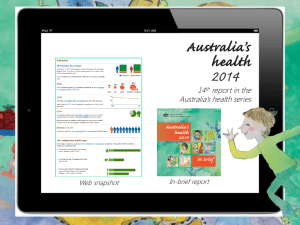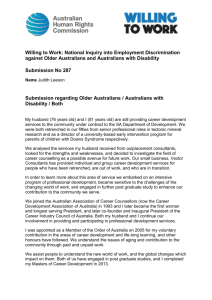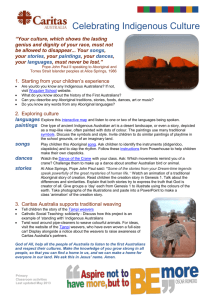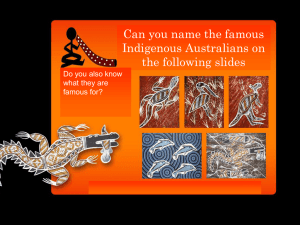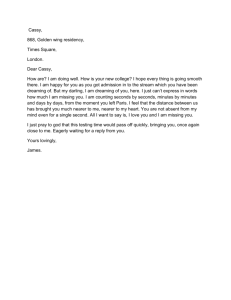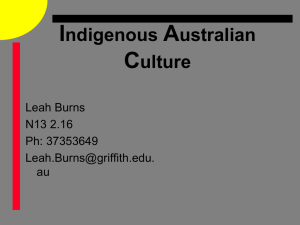AAEE Position on the National Curriculum
advertisement
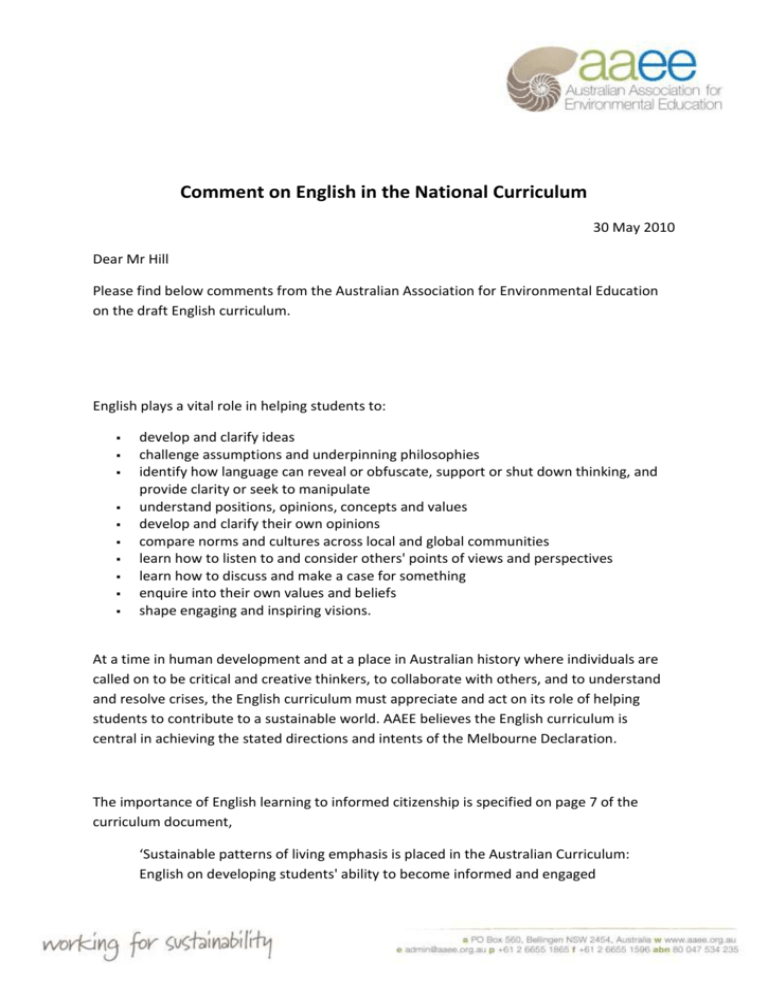
Comment on English in the National Curriculum 30 May 2010 Dear Mr Hill Please find below comments from the Australian Association for Environmental Education on the draft English curriculum. English plays a vital role in helping students to: develop and clarify ideas challenge assumptions and underpinning philosophies identify how language can reveal or obfuscate, support or shut down thinking, and provide clarity or seek to manipulate understand positions, opinions, concepts and values develop and clarify their own opinions compare norms and cultures across local and global communities learn how to listen to and consider others' points of views and perspectives learn how to discuss and make a case for something enquire into their own values and beliefs shape engaging and inspiring visions. At a time in human development and at a place in Australian history where individuals are called on to be critical and creative thinkers, to collaborate with others, and to understand and resolve crises, the English curriculum must appreciate and act on its role of helping students to contribute to a sustainable world. AAEE believes the English curriculum is central in achieving the stated directions and intents of the Melbourne Declaration. The importance of English learning to informed citizenship is specified on page 7 of the curriculum document, ‘Sustainable patterns of living emphasis is placed in the Australian Curriculum: English on developing students' ability to become informed and engaged citizens capable of independent thought and adaptable problem solving in a variety of contexts. The English curriculum aims to develop the capacity of young people to use language successfully to navigate their lives and world, in the present and in their futures. They learn to make informed decisions based on analysis of evidence and understanding that there are various positions and perspectives to negotiate’. Unfortunately, it is not followed through in the document. AAEE believes the design and content of the English curriculum needs to adhere to its own notion of informed citizenship described above if it is to contribute to developing students’ ability to ‘become informed and engaged citizens capable of independent thought and adaptable problem-solving in a variety of contexts.’ The curriculum does not currently do this; it is basically about the tools and processes of English rather than active language, literature and literacy in society and citizenship. Literacy is about reproductive and transformative practices. The opportunities to link the transformative practices of literacy to sustainable futures are missed in this document. It must require close consideration of the key terms and perspectives in the discussion of sustainability, citizenship and futures thinking. The English curriculum needs to provide the imprimatur for investigating the study of self in the context of the world outside and beyond schooling. It needs to attend to questions such as, How are we to live together on a single planet? and, How do we and others see and live with our natural environment? An example of addressing this particular question is through the study of Aboriginal and Torres Strait Islander cultures with a look at Dreaming Stories. Including Dreaming Stories as one of many in a list under the category of Literary and Nonliterary throughout the Year levels Eg. Year 5 Literary and Non-literary ‘Stories and poems from different cultures, novels, historical recounts, playscripts, ballads, song lyrics, Dreaming Stories, biographies, arguments, debates, procedural recounts, simple reviews of literary works and explanations’ (p. 22). does not give due respect to the significance of Dreaming Stories to the 60,000 plus years of living cultural relationship with land in Australia. Indigenous knowledge is positioned in semiotic terms of ‘representing and communicating knowledge and experience’ (page 1) This does not privilege the rich ontological relationships Indigenous Australians have with the land. Students will only gain a limited understanding of Indigenous ways of representing and communicating while the curriculum does not recognize the sustainable practices Indigenous Australians idealise in their texts. In an interview on Life Matters, ABC Radio National (19/5/10), John Ralston Saul said that when looking at people and environment relationships, Canadians and Australians are fortunate because Indigenous traditions (philosophies) of people and spiritual connections to land still exist, and these can help us challenge our Western tradition of ‘people versus nature’. AAEE believes that Dreaming Stories can be highly instructional in terms of cultural, ecological and spiritual understandings, particularly in comparison with other cultural stories. Dreaming Stories provide all Australians with insights into how First Australians saw and connected with Earth. These are powerful learning stories, and they need to be emphasised and linked to sustainability and citizenship for all Australians now and through the future. This is central to becoming ‘ethical, thoughtful and informed’ (p. 1). AAEE agrees that it is vital that our students be literate. It is equally important that schools, teachers and students themselves ask, Literate to what end? Literacy can be taught from ontological as well as epistemological perspectives. This provides students with opportunities to develop their relationships with place and identity while learning the meaning of different literacies in their life. The present document is lacking a sense of place-based literacies that are essential for students to develop their position on sustainable futures. AAEE recommends that the English curriculum develop student ways of seeing and exploring our world and skills that help them work with others to create healthy and sustainable societies now and in the future. Yours faithfully Phil Smith President AAEE

